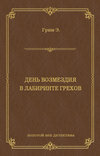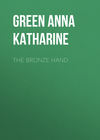Читать книгу: «Three Thousand Dollars», страница 3
CHAPTER VII
"I'm sure that I can get them for you"
IF you had three thousand!" She repeated it in surprise and yet with an indescribable air, which to one versed in human nature would have caught the attention and aroused strange inner inquiries. "Does the Stickney Company want money so badly as that?"
"That's not it. They have plainly told me that for three thousand dollars and my services they would give me ten thousand dollars' stock interest, but insist that the man who assumes the responsibility of the position must be financially interested as well. But I haven't the money, and without the money my experience appears to them valueless. I despair of getting another situation in these hard times and – Grace, you don't look sorry."
"Because – " she paused, and her fine eyes roamed about her jealous of a listener to her secret, but did not pierce the bush which rose up, cloudy with blossoms, a few feet behind their bench – "because it is not impossible for you to hope for those thousands. I think – I am sure that I can get them for you."
Her voice had sunk to a whisper, but it was a very clear whisper.
Young Andrews looked at her in surprise; there was something besides pleasure in that surprise.
"Where?" he asked.
She hesitated, and just at that moment the moon slipped behind a cloud.
"Where, Grace, can you get three thousand dollars? From Mr. Stoughton? He is generous to you, he pays you well for what you do for him, but I do not think he would give you that amount, nor do I think he would risk it on any venture involving my judgment. I should not like to have you ask him. I should like to rise feeling absolutely independent of Mr. Stoughton."
"I never thought of asking him. There is another way. I'd – I'd like to think it over. If your scheme is good —very good, I might be brought to aid you in the way my mind suggests. But I should want to be sure."
She was not looking at him now. If she had been, she might have been startled at his expression. Nor could he see her face; she had turned it aside.
"Grace," he prayed, "don't do anything rash. You handle so much money that three thousand dollars may seem very little to you. But it's a goodly sum to get or to replace if one loses it. You must not borrow – "
"I will not borrow."
"Nor raise it in any way without telling me the sacrifice you must make to obtain it. But it's all a dream; tell me that it's all a dream; you were talking from your wishes, not from any certainty you have. Say so, and I will not be disappointed. I do not want your money; I'd rather go poor and wait till the times change. Don't you see? I'd be more of a man."
"But you'd have to take it if I gave it to you, and – perhaps I shall. I want to see you happy, Philip; I must see you happy. I'd be willing to risk a good deal for that. I'm not so happy myself, father suffers so, and the care of it weighs on me. You are all I have to make me glad, and when you are troubled my heart goes down, down. But it's getting late, dear. It's time we went home. Don't ask me what's in my mind, but dream of riches. I'm sure they will come. You shall earn them with the three thousand dollars you want and which I will give you."
"I shall earn them honestly," were the last words he said, as they rose from the seat and began to move toward the gate. And the moon, coming out from its temporary eclipse, shone on his clear-cut face as he said this, but not on her bowed head and sidelong look. They were in the shadow.
There was something else in the shadow. As they moved away and disappeared in the darkness the long, slim figure of a man rose from behind the bush I have mentioned. He had a sparkling eye and a thin-lipped mouth, and he smiled very curiously as he looked after the pair before turning himself about and going the other way.
It was not Fellows; it was his chosen confederate in the nefarious scheme they had planned between them.
CHAPTER VIII
"I did as you bid me"
ANOTHER meeting in the old church, but this time at night. The somberness of the surroundings was undiminished by any light. They were in absolute darkness. Absolute darkness, but not absolute silence. Noises strange and suggestive, but not of any human agency, whispered, sighed, rattled, and grumbled from far away recesses. The snap of wood, the gnawing of rats, the rustling of bat wings disturbed the ears of one of the guilty pair, till his voice took on unnatural tones as he tried to tell his story to his greedy companion. They were again astride the bench, and their thin faces were so near that their breaths commingled at times; yet Fellows felt at moments so doubtful of all human presence that instinctively his hand would go groping out till it touched the other's arm or breast, when it would fall back again satisfied. He was in a state of absolute terror of the darkness, the oppressive air, the ghostly sounds, and possibly of the image raised by his own conscience, yet he hugged to himself the thought of secrecy which it all involved, and never thought of yielding up his scheme or even shortening his tale, so long as the other listened and gave his mind to the problem which promised them thousands without the usual humdrum method of working for them.
We will listen to what he had to say, leaving to your imagination the breaks and guilty starts and moments of intense listening and anxious fear with which he seasoned it.
"I did as you bid me," he whispered. "Yesterday fresh orders came from abroad, in cipher, as usual. (It's an unreadable cipher. I've had experts on it many times.) I had hung it up, and though business was heavy, my business, you know, I had eyes for our fair friend, and knew every step she took about the offices. I even knew when her eyes first fell on the cablegram. I had my door open, and I caught her looking up from her work, and what was more, caught the pause in the click-click of the typewriter as she looked and read. If she had not been able to read, the click-click would have gone on, for I believe she could work that typewriter with her eyes shut. But her attention was caught, and she stopped. I tell you I've been humiliated for the last time. I'm in for anything that will make that girl step down and out. What was that!"
Muttered curses from his companion brought him back to his story. With a gulp he went on:
"You may bet your bottom dollar that I watched her after that, and sure enough, in less than half an hour she had gone into the room where the safe is. Instantly I prepared my coup d'êtat. I waited just long enough to hear her voice in that one song she sings, then I jumped from my seat and rushed to the door, shouting, 'Miss Lee! Miss Lee! Your father! Your father!' making hullabaloo enough to raise the dead and scare her out of her wits; for she dotes on that old man and would sell her soul for his sake, I do believe.
"Great heavens, it worked! As I live, it worked. I heard her voice fail on that high upper note of hers, and then the sound of her feet staggering, slipping over the floor, and in another moment the fumbling of her hand on the knob and the slow opening of the door which she seemed to have no power to manage. Helping her, I pulled it open, and there beyond her and her white, shocked face, I saw – I saw – "
CHAPTER IX
"'The safe door is opened,' I cried"
GO on! Don't be a fool; that was nothing."
"I don't know; it was like a great sigh at my ear. But this is awful! Couldn't we have one spark of light?"
"And have the police upon us the next minute? Look up at that window. You can see it, can't you?"
"Yes, yes, but very faintly," Fellows whispered.
"But you can see it. So could those outside, if we had one glimmer of light in here. No, no, you'll have to stand the dark or quit. But you shan't quit till you've told me what you saw in the room where the safe is."
"The safe door opening." His voice trembled so that the other shook him to steady his nerves. "Not opened, mind you, but opening. It was like magic, and I stared so that she forgot her fears and forgot her questions. Turning from me with a startled cry, she looked behind her, and saw what I saw, and tried to push me out. 'I'll come, I'll come,' she whispered. 'Leave me a minute and I'll come.'
"But I wasn't going to do that. 'The safe door is opened,' I cried. 'Did you do it?' She didn't know what to say. I have never seen a woman in such a state; then she whispered in awful agitation, 'Yes; I've been given the combination by Mr. Stoughton. I'm duly following his orders. But my father! What about my father? You frightened me so I forgot that – ' I waited, staring at her, but she didn't finish. She just asked, 'My father? What has happened to him?' 'Nothing serious,' I managed to say. I wished the old father was in ballyhack. But he'd served his turn; I must say that he'd served his turn. 'A telephone message,' I went on. 'He had had a nervous spell and wanted you. I said that you could go home at noon.' She stood looking at me doubtfully; then her eyes stole back to the safe. 'You will have to leave me here for a few minutes,' she said. 'I have Mr. Stoughton's business to attend to. He will not be pleased at my having given away his secret. He did not wish it known who controlled his affairs in his absence, but now that you do know, you will be doing the right thing to let me go on in the way he has planned for me. His orders must be carried out.'
"She is very determined, and understands herself only too well, but I am manager, and I paid her back in her own coin. 'That's all very well,' said I, 'but what proof have I that you are telling me the truth? You have opened the safe – you say you have the combination – but people sometimes surprise a combination and open a safe from other interests than those of their employer. You seem a good girl, but you are a girl, and there are men here much more likely to be in Mr. Stoughton's confidence than yourself. With that open safe before us I cannot leave you here alone. What you take from it I must see, and if possible be present at your negotiations. That I consider a manager's duty under the circumstances.' 'Mr. Fellows,' she asked, 'can you read this morning's telegram?' 'No,' I felt bound to reply. 'Then that acquits you. I can.' And again she tried to urge me to go out. But I would not be urged. I was staring across the room at the open safe and in fancy clutching its contents. In fact, I made one step toward them. But she drew herself up with such an air that I paused. She's a big girl, you know, and not to be fooled with when she's angry. 'Come a step farther and I will scream for the watchman,' she whispered. All our talk had been low, for there were listening ears everywhere – we couldn't risk that, and I stepped back. Immediately she saw her advantage, and added, 'If you do not think better of it and leave the room, I'll scream.' For answer to this I said that I – "
Покупайте книги и получайте бонусы в Литрес, Читай-городе и Буквоеде.
Участвовать в бонусной программе




















